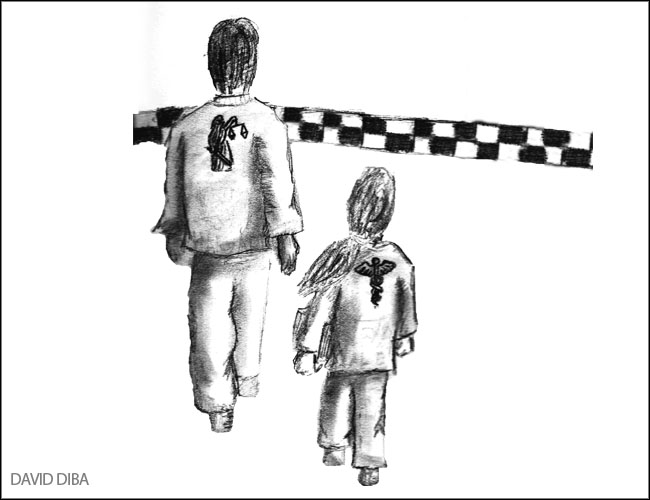
“I’m pretty sure most siblings fight…if not, there’s something wrong with you,” says junior Smita Jain. Sibling rivalry often affects the relationship between the older sibling and the younger sibling, and, especially in high school, it tends to be based on competition.
When a younger sibling establishes this competition by trying to follow the choices and successes of their older sibling, they are inevitably placed in a “shadow of achievement,” a metaphorical image that represents the certain amount of pressure hefted upon the younger one by the older one’s accomplishments.
Many younger siblings view this “shadow” as a motivator to exceed the achievements of their older siblings. Freshman Amy Yu experiences the pressure of having two older sisters, one of whom is an Aragon alumni and the other a current junior. Yu openly expresses her desire to exceed her sisters’ accomplishments in the future. “Maybe I won’t be able to surpass them in everything,” she says, “but to be able to do better than one of them in a certain subject or activity is something I would feel proud of doing.”
Melissa Ma, a sophomore with an older sister at UCLA, says, “If she’s able to accomplish something, I think I should be able to do that too.”
Junior Sally Hosokawa has an older sister who graduated from Aragon last year and now attends Brown University. Hosokawa says, “Lots of people tell me I should go to an Ivy.” However, in spite of this, she doesn’t let the pressure of the shadow damage her relationship with her sister. “She inspires me to work hard in school, but also in playing the violin and with my social life. I admire how she has such a diverse and wide range of friends,” she adds.
Many younger siblings experience similar benefits. For sophomore Jordan Lim, athletic pressure is balanced out by his healthy relationship with his older sister, who is also an athlete. He says, “I feel special when being compared to her [by teachers].” He adds, “I like it when she helps me run and practice soccer.”
Some feel relieved that they don’t have to follow siblings’ footsteps. “I’m more interested in sports, and [my brother] is more interested in music,” freshman Kevin Wang says.
English teacher Victoria Daniel notices these differences in siblings. Many times she has taught an older sibling for one year, and has then received their younger sibling later enrolled in the same class. “I find [teaching older and younger siblings] fascinating,” she says. “I think I’ve only seen one or two cases where a younger sibling didn’t feel good about himself, where it became a problem in class. Usually [older and younger siblings] have different talents, like academics versus sports or theater.”
She adds, “There are also instances where a lot of younger siblings do not want to be associated with the older sibling, maybe because that older sibling wasn’t a good student or has established a name or reputation.”
Like Daniel, math teacher Alice Hu receives many siblings of the same family. “I don’t even notice at first,” she says, “but when I do, I try to see them as a different person. I don’t compare them at all.”
For the most part, the idea that all younger siblings with successful older siblings endure rivalrous pressure is a bit of an exaggeration. Hanna and Hillary Koh, twin sisters and seniors at Aragon, have a younger sister who is a junior. They understand their younger sister’s determination to study well in her junior year, but they do not purposely try to be inspirational or pressure their sister in any way to achieve the things they have achieved. “She’s too close in age,” they explain, “so we see each other the same. We recognize each other as friends.”
Most do not define themselves under the “shadow of achievement.” In fact, it may not be a shadow at all but a spotlight, which allows younger siblings to make the best of an opportunity.
Senior Alyssa Block thinks along these positive lines about her own freshman sister, saying, “I just hope she can use lessons from me and apply them to her own life.”




